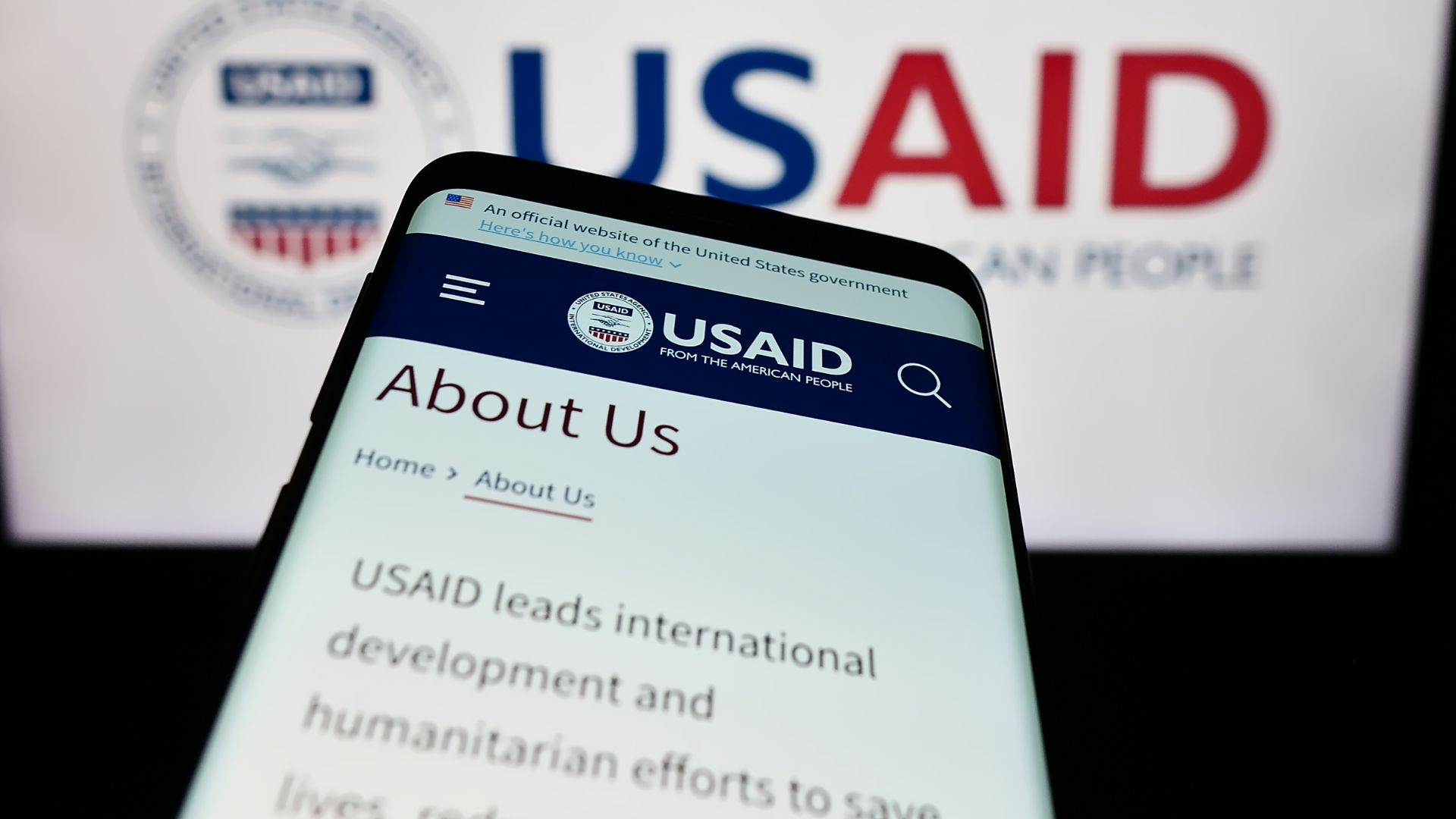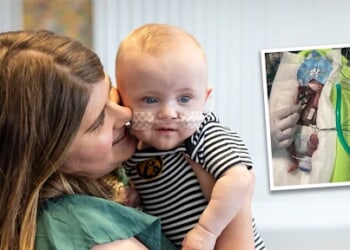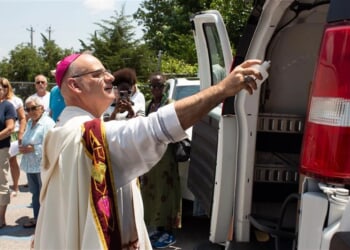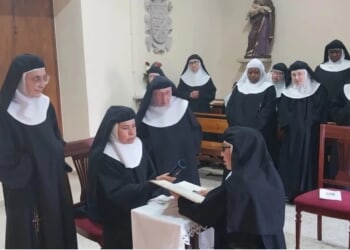
The U.S. Agency for International Development (USAID) transferred thousands of viral samples to the Wuhan Institute of Virology (WIV) in China over a 10-year period without securing a formal agreement to govern the exchange, according to newly obtained internal documents.
These documents, which were not previously disclosed, highlight significant gaps in oversight and accountability during a global public health program partially funded by the American government.
At the center of the matter is USAID’s $210 million PREDICT program, led by the University of California-Davis.
Trump’s Sovereign Wealth Fund: What Could It Mean For Your Money?
The initiative collected viral samples across several countries, including China’s Yunnan Province, a region known to host coronaviruses closely related to SARS-CoV-2, the virus responsible for COVID-19.
The program aimed to identify pandemic threats but lacked clear protocols for long-term sample storage and tracking once federal funding concluded in 2019.
Documentation from the program, reviewed by the Daily Caller News Foundation (DCNF), revealed that 11,000 samples were exported to WIV with no indication of safeguards to ensure the materials were not diverted for unauthorized use, such as bioweapons development, or that the U.S. government could later access them for investigation.
This Could Be the Most Important Video Gun Owners Watch All Year
Despite Yunnan not being an official PREDICT partner, the internal plan stated: “All samples they helped collected [sic] are sent to, tested, and stored in Wuhan.”
The Wuhan Institute of Virology, which worked closely with EcoHealth Alliance—a contractor for USAID—and was proposed as a future partner in a similar State Department-backed initiative, has come under scrutiny for its lax biosafety protocols and connections to China’s People’s Liberation Army.
Among the samples sent to Wuhan was one of the closest known relatives to SARS-CoV-2.
The internal documents and questions raised about the lab’s safety and transparency have added new weight to concerns about the virus’s origin.
A senior State Department official told the DCNF: “Investigations involving USAID’s former funding of global health awards remain active and ongoing. The American people can rest assured knowing that under the Trump Administration we will not be funding these controversial programs.”
Today marks the first day of the State Department’s America First foreign assistance rebranding initiative, led by @SecRubio.
Consistent branding will ensure contributions made by the the United States will be immediately recognized as American.
“The redesign is very simple,… pic.twitter.com/HZnbOxU0Sq
— Department of State (@StateDept) July 2, 2025
The documents were obtained through a Freedom of Information Act (FOIA) lawsuit filed by U.S. Right to Know, a nonprofit investigative group focused on public health and transparency.
The revelations come amid the formal closure of USAID, which was completed on Tuesday.
The decision has sparked debate over the agency’s long-term global health impact.
A study published in The Lancet suggested that decreased USAID funding could be associated with 14 million additional deaths worldwide, based on epidemiological modeling.
However, critics say the agency’s record has not matched its stated goals. Secretary of State Marco Rubio issued a statement Tuesday saying, “Beyond creating a globe-spanning NGO industrial complex at taxpayer expense, USAID has little to show since the end of the Cold War. Development objectives have rarely been met, instability has often worsened, and anti-American sentiment has only grown.”
The agency’s involvement with the Wuhan lab has become a focal point in assessing its legacy.
“The USAID $210 million contract for PREDICT should have included contractual terms that required all samples, or at least copies of all samples, be transferred to and stored by a U.S. government facility,” said Rutgers University molecular biologist Richard Ebright.
“The PREDICT grift did none of this.”
Requests for comment from UC Davis and the State Department went unanswered.
Further complicating the matter are questions surrounding the scientists responsible for overseeing the samples.
Ben Hu, a virologist at WIV, reportedly fell ill with COVID-like symptoms in late 2019.
He, along with Peter Daszak of EcoHealth Alliance—who was later debarred from receiving federal funds for inadequate oversight in Wuhan—were key figures in the handling of the viral samples. Neither responded to requests for comment.
The documents also describe how samples from wildlife were collected and stored in several countries, including India, Liberia, Malaysia, the Republic of Congo, and China.
Some of these were stored in virus-transport media (VTM), which enables researchers to preserve live viruses for future laboratory use.
Reuben Guttman, a partner at Guttman, Buschner & Brooks PLLC who specializes in government program compliance, emphasized the lack of procedural rigor.
“It’s not rocket science to require a contract and supporting paperwork which establishes a relationship, testing protocol, and chain of custody, when one is sending out lab samples,” Guttman said.
“In any scientific endeavor, you need confidence in your results. That requires paperwork to prove your methodology is sound.”
Celebrate Summer with this LIMITED EDITION Grizzly Trump Cooler! Exclusively on Mammoth Nation.
The opinions expressed by contributors and/or content partners are their own and do not necessarily reflect the views of LifeZette. Contact us for guidelines on submitting your own commentary.

![Documents Reveal USAID Shipped Thousands of Virus Samples to Wuhan Lab [WATCH]](https://www.right2024.com/wp-content/uploads/2025/07/Documents-Reveal-USAID-Shipped-Thousands-of-Virus-Samples-to-Wuhan-750x375.jpg)


![Steak ’n Shake Mocks Cracker Barrel Over Identity-Erasing Rebrand [WATCH]](https://www.right2024.com/wp-content/uploads/2025/08/Steak-n-Shake-Mocks-Cracker-Barrel-Over-Identity-Erasing-Rebrand-WATCH-350x250.jpg)




![Mount Rushmore Could Get Trump Upgrade Under GOP Push [WATCH]](https://www.right2024.com/wp-content/uploads/2025/07/Mount-Rushmore-Could-Get-Trump-Upgrade-Under-GOP-Push-WATCH-350x250.jpg)
![Soros Network, Others Behind LA Riots [WATCH]](https://www.right2024.com/wp-content/uploads/2025/06/Soros-Network-Others-Behind-LA-Riots-WATCH-350x250.jpg)





